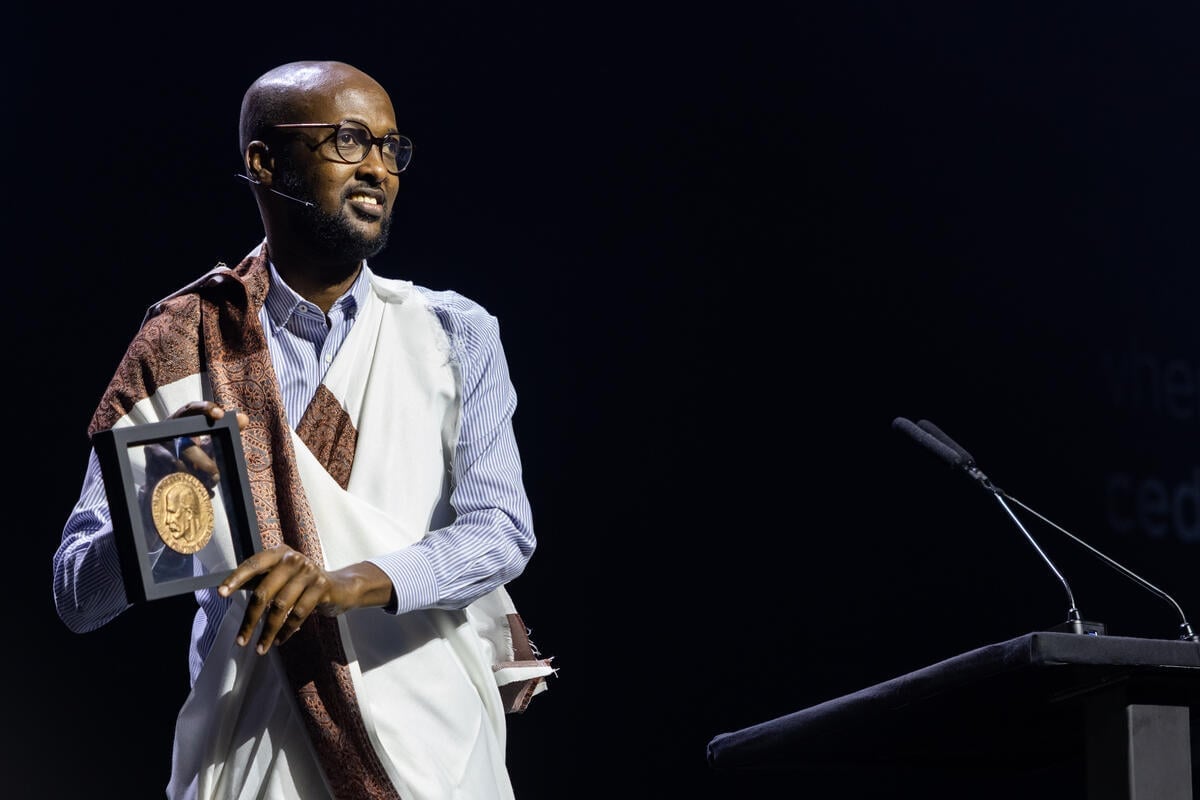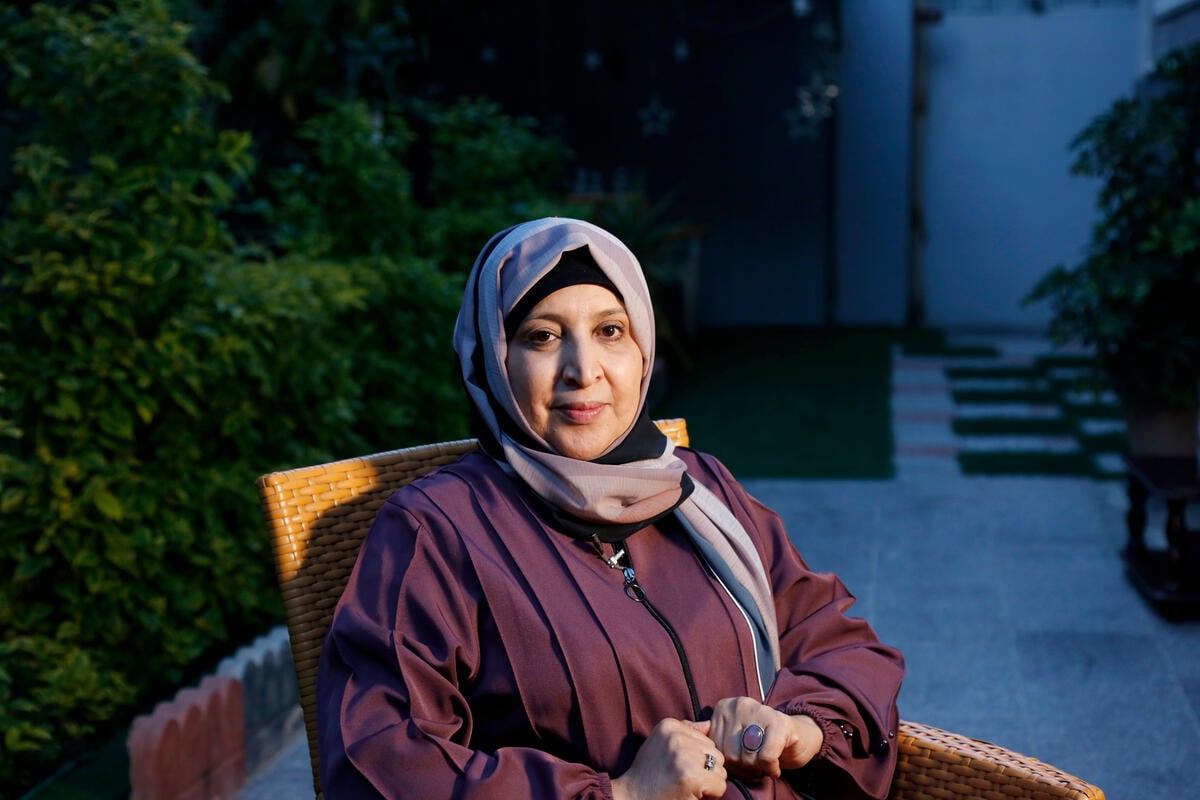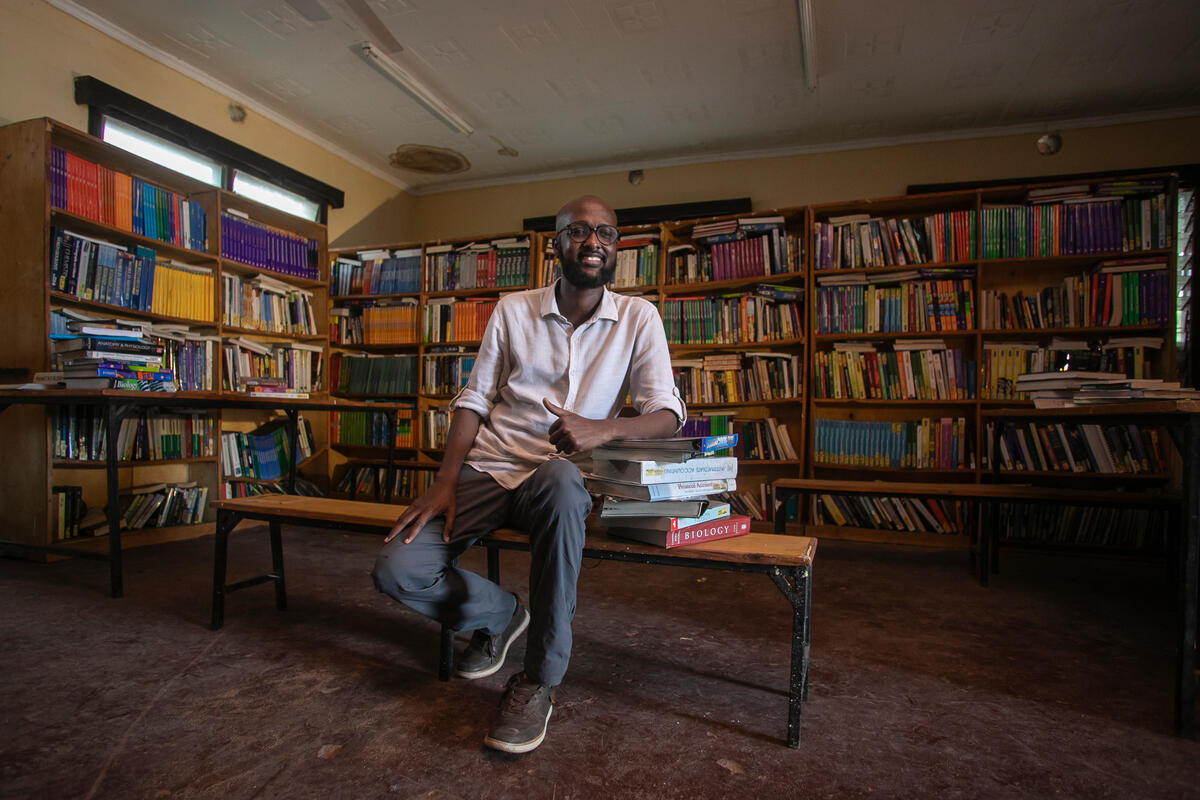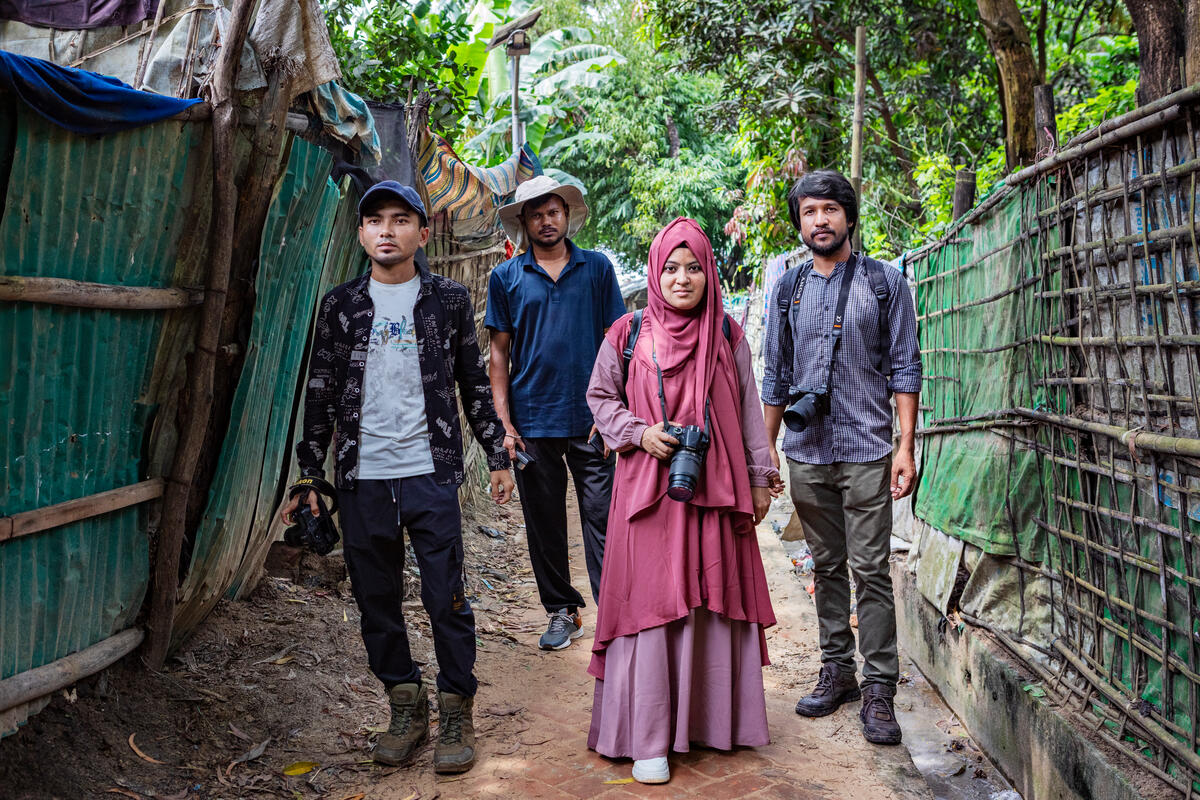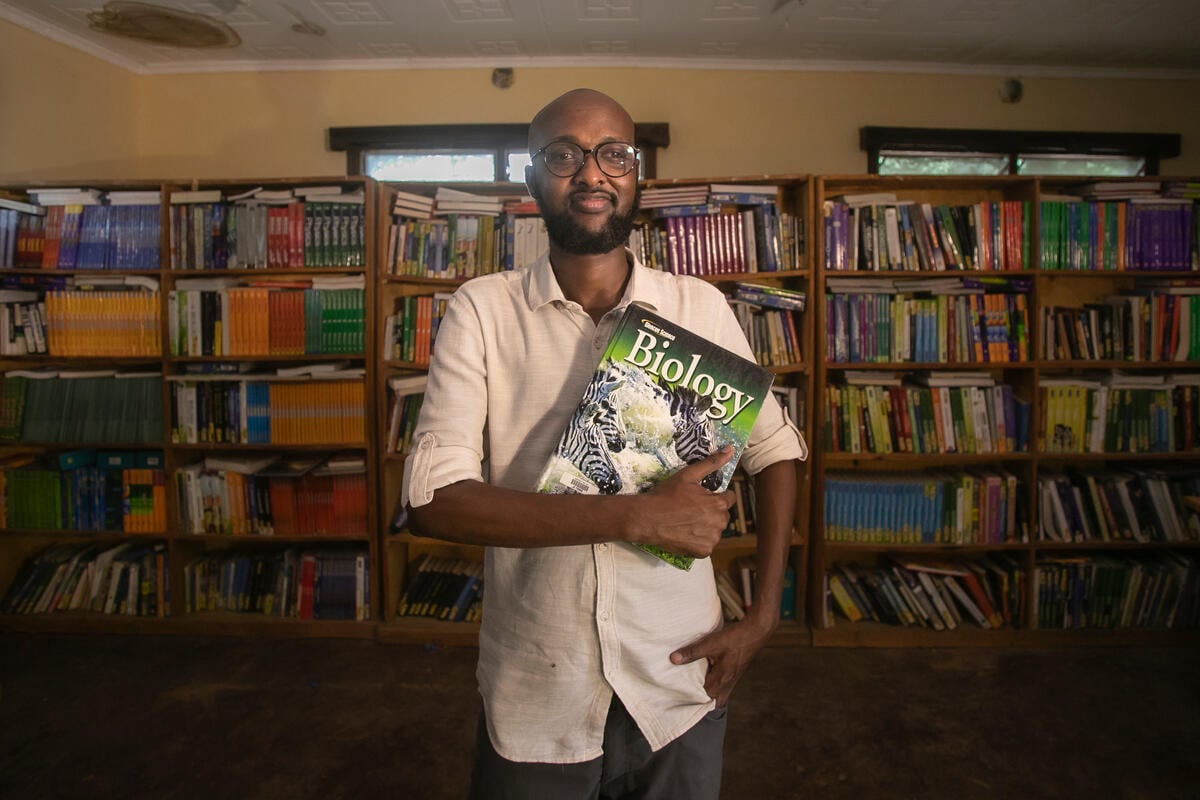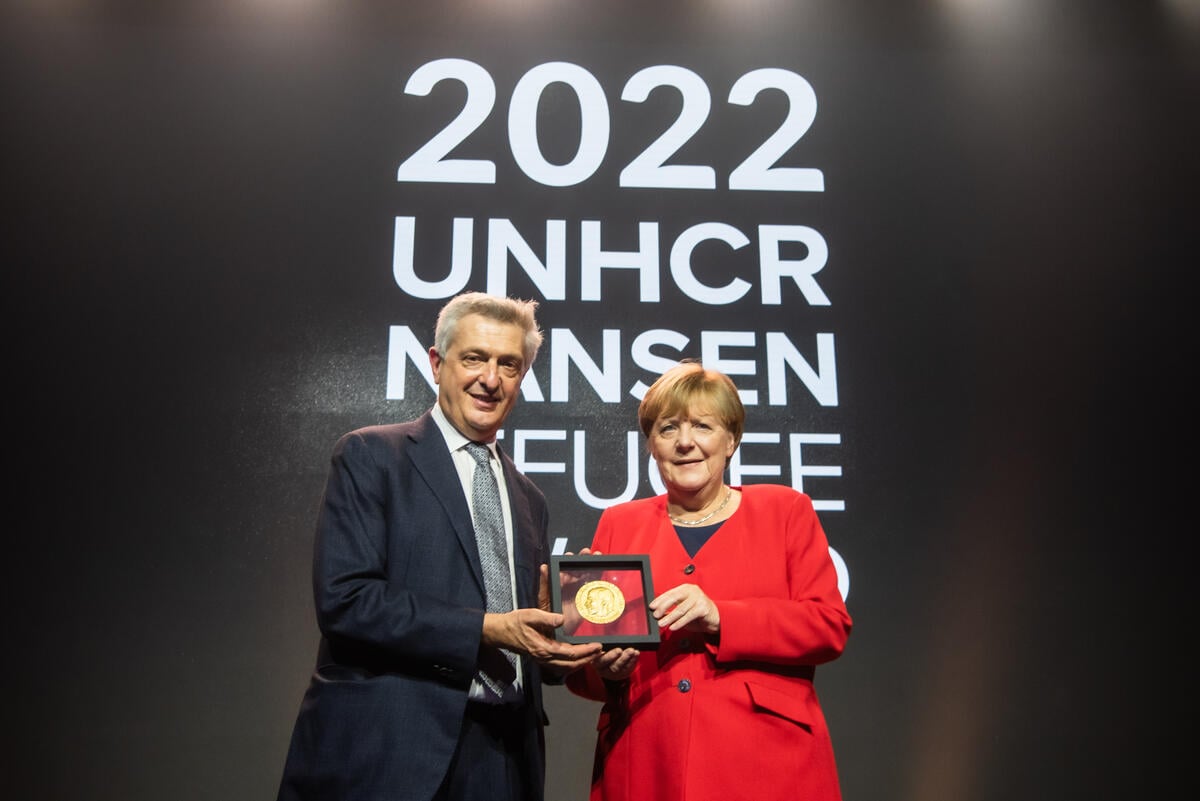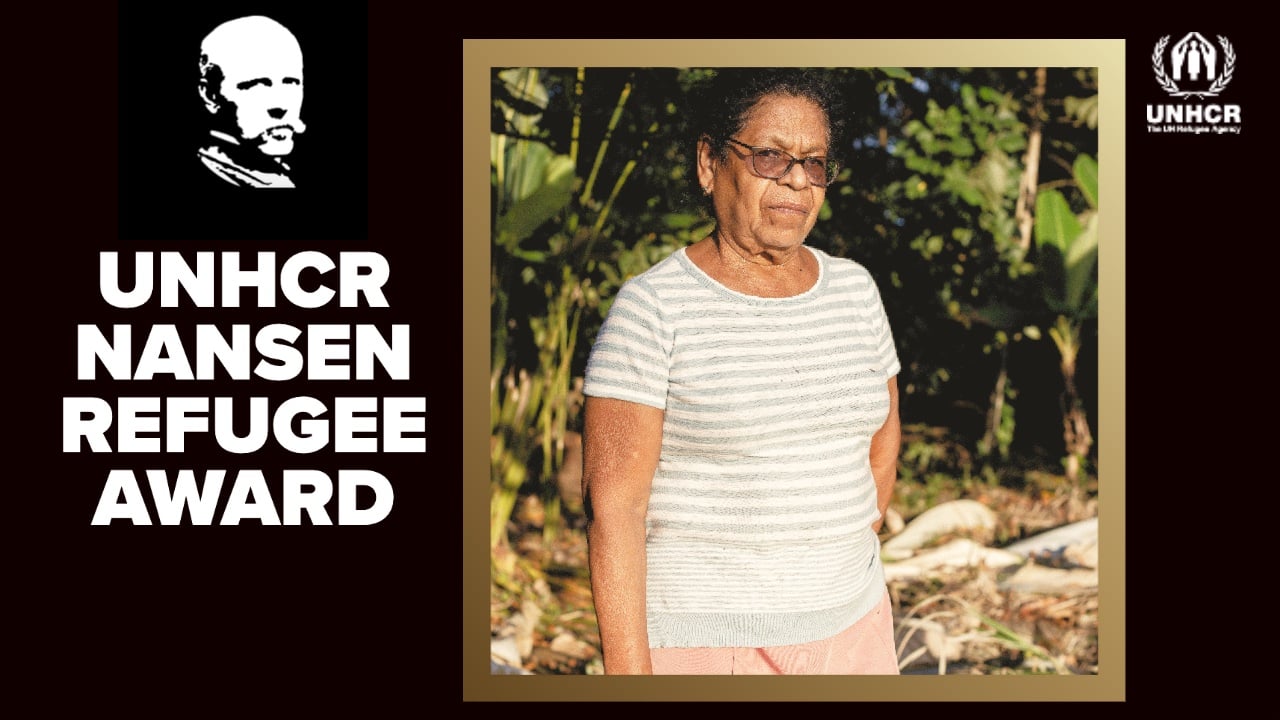Colombian rights advocate defies danger to save and improve lives
Colombian rights advocate defies danger to save and improve lives
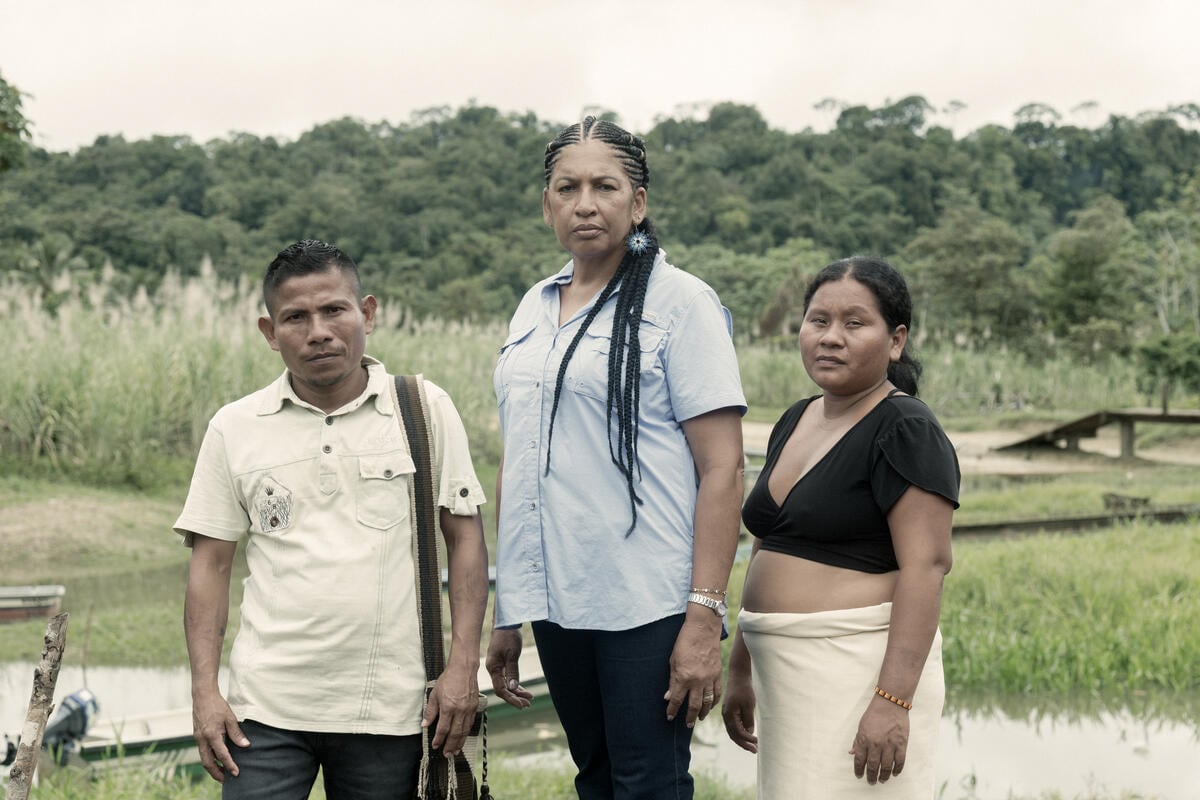
Elizabeth Moreno Barco (center) with local leaders Geidy Ismare Diripar (right) and Uldarias Guafico (left) from the Wounaan Indigenous community in Medio San Juan, Chocó, Colombia.
In 2013, the chilling sight of corpses floating down the San Juan River through her village of Togoromá was the first sign that the long-running internal armed conflict between rival groups had reached her own doorstep.
“The bodies had messages on them. It was made clear that you couldn’t pull them out of the water and bury them,” said Moreno, 55, known to most by her nickname, “Chava”. One of the armed groups embroiled in the fighting moved into the area, and six months later a rival group attacked. “In the chaos, with people running everywhere, there were a lot of bullets. It was a situation that we had never seen before in our territory.”
Along with her family and the other villagers, Moreno fled Togoromá and is yet to return home. But the experience made her more determined to speak out against the violence and abuses taking place in Chocó, having already established herself as a local leader and been elected as an authority for the Afro-Colombian community.
She began to campaign more vocally on behalf of Chocó’s majority Afro-Colombian population and others whose safety and way of life were threatened, including the area’s Indigenous groups. Since the mid-1980s, the violence in Colombia has affected close to 10 million people, forcing more than 8 million from their homes during that time, including Moreno.
Community leader
“Chocó is one of the territories most affected by the armed conflict in Colombia,” Moreno explained. “Here we have had the worst massacres, we have had forced disappearances, communities have suffered confinement, people have been accused of collaborating with armed groups, there have been a lot of murders. We have experienced human rights violations in every sense of the word.”
“I think that was my real motivation, to be able to let other people know about the situation we were experiencing. So that’s where this desire to be a leader was born,” she added.

Moreno walks along the pier at Togoromá, the village on the San Juan River in Chocó where she lived with her family before being displaced by armed conflict.
Her vision and influence led to her becoming the first woman elected as the legal representative of ACADESAN, a territorial council that promotes and protects the rights of 72 Afro-Colombian communities living in the southern San Juan region. Now, she serves as the coordinator of the Chocó Solidarity Inter-ethnic Forum (FISCH), which promotes development based on ethnic culture and knowledge while tackling issues such as forced displacement and confinement.
The latter is a strategy used by armed groups to control communities whereby entire villages are prevented from leaving their territory, putting lives on hold and deepening their hardship. Nearly two thirds of all confinements in Colombia this year have occurred in Chocó.
As part of her ACADESAN role, Moreno ensured that the interests of ethnic communities were included in the 2016 peace talks between the Colombian government and the Revolutionary Armed Forces of Colombia (FARC) in Havana, Cuba. She also brokered a partial truce between rival armed groups in 2017 that brought peace to San Juan for three years before the violence reignited in 2020.
More recently, she has successfully negotiated with armed groups for the release of young kidnap victims, including two boys who were safely reunited with their families in August.

Moreno speaks to participants at a workshop organized by ACADESAN, the Community Council of the San Juan River.
In recognition of her brave and unwavering commitment to promoting the rights of her fellow Colombians, Moreno has been chosen as the 2023 regional winner for the Americas of the UNHCR Nansen Refugee Award.
Sister Carmen, a nun who works in Noanamá village located in a bend of the San Juan River, describes the moment she and others saw how fierce and effective an advocate Moreno could be, when armed FARC guerrillas disrupted a community meeting, they were both attending. Moreno took the floor and told them that the territory belonged to the residents who had lived there for generations, not them.
“All those men [in the meeting] were scared, but Chava was the only one who stood and spoke up,” Sister Carmen said.
When Moreno addresses an audience, her resolute expression and forthright tone make it easy to see why politicians, armed groups and on one occasion even the UN’s Security Council pay attention.

Moreno embraces Sister Maria del Carmen, a nun based in the village of Noanamá in San Juan, which hosts people displaced from other parts of Chocó.
“What I have always tried to do is be authentic, be from here, from my territory,” Moreno said of her approach to advocacy. “I don’t go around using fancy language; I am myself.”
Dangerous work
Much of her day-to-day work, however, involves travelling long distances by boat along the San Juan and its tributaries, visiting and hearing from the communities she represents. Walking down the main street of Docorodó, her long braided hair brushing the hem of her button-down shirt, the locals greet her warmly, children rush to embrace her, and a young activist approaches her for advice.
“She is a person without airs, simple and unpretentious,” said Cecilia Rosero, a local community leader. “From her, I have learned that little by little and with hard work you can achieve many things. I have also learned from her that you have to be brave. In this territory where we work, being a social leader is dangerous and not everyone dares to be one.”

Children in Noanamá village look at a mural depicting communities living along the San Juan River and its tributaries.
Watching Moreno interact with people in the towns and villages she visits, her expression softens into a smile and it is clear that she feels most at home among the people of Chocó.
“For us social leaders, we like to serve our communities. We do it from the heart, with love,” she said. “I believe that when things are done with love and out of devotion … that is when they work out well.”
Moreno’s devotion to improving the lives of her neighbours in this beautiful but volatile part of Colombia means that she plans to keep working until not only their safety but also their future prosperity is secured.
“Many people believe that peace just involves the armed groups laying down their weapons, but for us that only means that the guns are silenced,” she said. “Once we have equal conditions, all our rights are guaranteed and there are no more human rights violations, then we can talk about peace.”
"Chava was the only one who stood and spoke up."



